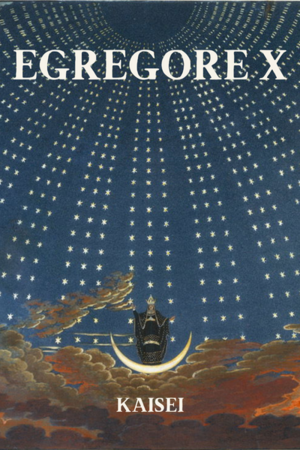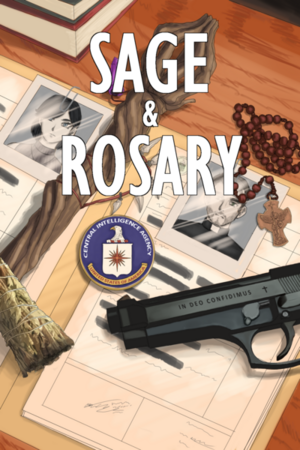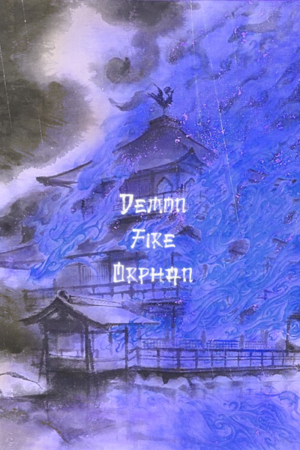Chapter 1:
My Story...
The Time When I Saw Death.
Cancer.
That word alone had carried the weight of death when the doctors whispered it. The first time he heard it, Kitersu felt like someone had taken the earth from under him. He was only fifteen. Fifteen, and yet the shadow of death followed him with every breath.
Every night, when the machines beeped beside him, he wondered if morning would ever come. His parents, smiling bravely beside his bed, had eyes red from endless crying when they thought he wasn’t looking. He hated it — hated being the reason they were breaking.
And yet… somewhere inside the brokenness, a fragile ember of hope still flickered. Kitersu was not ready to leave.
Not yet.
The morning sun had a cruel way of shining too brightly when tragedy struck. Kitersu remembered that day with a clarity sharper than a blade. It was a Saturday in late autumn. The air smelled of damp leaves, and he had finally been discharged for a weekend at home after another round of chemotherapy. His parents decided they would take him for a drive — a small family outing, nothing special, just a way to breathe again.
His mother hummed softly to the radio as she drove, her long hair tied back neatly. His father kept cracking jokes, the kind that weren’t really funny but always made Kitersu laugh anyway. For the first time in months, laughter filled their little car, drowning out the memory of hospital corridors.
The road stretched endlessly, golden trees on both sides. Kitersu leaned his head against the window, closing his eyes, letting the wind brush across his face from the half-open glass. For that moment, he felt alive again.
Then — metal screamed. Tires shrieked.
He opened his eyes just as blinding headlights tore into their lane.
“Hold on!” his father yelled.
There was no time. The crash was thunder. Glass shattered like rain. Kitersu’s body was thrown, his head snapping back against the seat. His mother’s scream cut off too quickly.
Darkness swallowed him.
---
When Kitersu awoke, everything was quiet except for the steady beep of machines. His body felt heavy, trapped. He tried to move, but pain burned through him. A nurse’s voice whispered somewhere nearby.
And then he heard the words that destroyed him.
“Both his parents… they didn’t make it.”
Kitersu’s breath caught. His heart pounded wildly against fragile ribs.
No.
No, it couldn’t be real.
But it was. His world had ended on that road. The cancer hadn’t taken him yet — but life had stolen the only people who had kept him fighting.
He wanted to scream. He wanted to tear the tubes from his arms. But all that came out was a broken sob, muffled by the weight of grief pressing into his chest.
That night, as the cold moonlight slipped into his hospital room, Kitersu whispered to the ceiling:
“Why them? Why not me?”
The silence answered back.
And for the first time since his diagnosis, he no longer feared death. He longed for it.
The days after the crash blurred together like smudged paint on wet paper. Kitersu remained in the hospital, his frail body bandaged, stitched, and scarred. Yet the physical wounds weren’t what hollowed him — it was the silence.
Every time he opened his eyes, he expected to see his mother’s gentle smile, his father’s rough but reassuring hand on his shoulder. Instead, there was only the sterile white of the hospital ceiling and the hollow ache of absence.
At night, he heard them. Not their voices, but echoes. His mother’s laugh carried through the rustle of curtains. His father’s humming lingered in the faint buzz of the machines.
“Kit… don’t give up.”
He swore he heard those words one night, clear as day, though no one was in the room. He sat up, trembling, tears staining the pillow.
But in the morning, reality always cut him open again. The bed where they should have been sitting was empty. No amount of tears could change that.
Doctors called him lucky. Lucky that he survived. But Kitersu felt cursed. What kind of luck took away the ones who mattered most? What kind of cruel miracle left him alive only to suffer?
He stopped speaking much. Nurses tried. Counselors tried. But every time they mentioned moving on, his heart clenched tighter. How could he move on when his heart had been buried in the wreckage with them?
Some nights, he pressed his hand against his chest and wondered if the cancer would finally finish the job. If it did, maybe he’d see them again.
Yet, deep inside the despair, there was a war — a small, stubborn ember refusing to go out. A whisper of a thought: If I’m still here, maybe it means something.
But he was too broken to understand what that meant. Not yet.
Winter came, sharp and merciless. Kitersu’s body weakened again, dragged back into treatments and sterile wards. His reflection in the mirror was a stranger: pale skin, hollow cheeks, bruises under his eyes. He looked less like a boy and more like a fading shadow.
One night, the fever hit hard. His skin burned while his body trembled. He could hear the distant panic of nurses rushing, calling his name, but everything blurred into white.
And then — silence.
He stood in a place that wasn’t the hospital. The ground beneath him was endless glass, reflecting a sky of shifting gray. The air was neither warm nor cold. It was empty, weightless.
Ahead, two figures appeared. A woman with flowing hair and kind eyes. A man with a strong build and familiar smile.
“Mom… Dad?” Kitersu whispered, his voice trembling.
They didn’t answer, but they smiled, reaching their hands out toward him. His chest cracked open with longing. He stumbled forward, reaching back. Just a little further, and he could touch them — just a little further, and he’d never be alone again.
But then, another sound pierced through — faint at first, then stronger. The steady beeping of a heart monitor.
“Kitersu! Stay with us!” a nurse’s voice cried.
The figures of his parents began to fade. Kitersu screamed, reaching out, tears streaming down his face.
“No! Don’t leave me again!”
But they only smiled, gentle and sorrowful. His father’s lips moved, though the voice was carried in the wind instead of sound:
“Live… Kit.”
And then, darkness swallowed the glass world.
When he woke, his chest heaved painfully, tubes still clinging to his arms. Nurses exhaled in relief, doctors scribbled notes, but Kitersu’s mind was elsewhere.
They were gone. Truly gone. Yet in that fleeting moment between life and death, he understood something terrifying and beautiful.
They wanted him to live.
And for the first time since the crash, Kitersu wasn’t sure he wanted to die.
Life outside the hospital was not the same anymore. When Kitersu was finally discharged, he returned not to a home but to a shell.
The house stood quiet, suffocating in its emptiness. His parents’ shoes still sat by the door. His mother’s favorite mug lingered on the counter. His father’s coat hung by the stairs, untouched, as if waiting for him to return.
Kitersu stood there, frozen in the doorway, clutching the keys in his trembling hand. The silence was unbearable. He almost wished for the hospital beeps again — at least they reminded him he wasn’t alone.
At night, he wandered the hallways with hollow eyes. He sat in his parents’ bedroom, burying his face into the pillow that still faintly smelled like them. He opened drawers, looked through old photographs, and clutched his chest as though holding his heart together with his hands.
People came by at first — neighbors, distant relatives, social workers. They brought food, said things like “Stay strong” and “They’d want you to be happy.” But their voices sounded fake, empty. None of them understood.
So, one by one, they stopped visiting.
And Kitersu was left with nothing but ghosts and his reflection — a sickly boy fighting both cancer and grief, drowning in two oceans at once.
One evening, after another round of chemotherapy, he collapsed on the living room floor. His body was weak, his chest heavy. Tears soaked the carpet as he whispered to the emptiness:
“Why did you leave me? Why didn’t you take me too?”
But deep inside, he remembered his father’s fading words: Live, Kit.
He hated those words. They chained him to a future he didn’t want. Yet, somehow, they also kept him breathing.
Spring arrived quietly, painting the world in green again. But to Kitersu, the days still felt gray.
One morning, while sitting on the porch, he noticed a little boy across the street chasing after a paper plane. The plane caught the wind and soared high before tumbling into Kitersu’s yard. The boy ran up shyly, eyes wide.
“Can I have it back?” he asked.
Kitersu picked up the fragile paper and handed it over. For the first time in months, a small smile tugged at his lips.
“Thanks,” the boy grinned before running off.
That simple moment lingered. It wasn’t much, but it stirred something inside Kitersu — a reminder that life still had small sparks waiting, even in the ashes.
Days turned into weeks. Kitersu began walking outside more often, slowly regaining strength. The chemotherapy was brutal, but he endured, clutching at the memory of his parents urging him to live.
One afternoon, he found himself sketching again. He hadn’t drawn since before the diagnosis. His hands trembled, the lines uneven, but the paper began filling with shapes — his mother’s smile, his father’s strong stance, even the paper plane.
And with every stroke of the pencil, the emptiness inside him felt just a little less crushing.
Kitersu knew he was still broken. The grief wasn’t gone, and the cancer still loomed like a storm on the horizon. But for the first time, he realized something important:
He didn’t have to heal all at once. Even a fragile flame could survive the darkest night.
And maybe — just maybe — he could learn to live again.
Recovery wasn’t a straight line. Some days Kitersu woke up with enough strength to walk through the garden, feel the sun on his face, and even laugh faintly when children played nearby. But other days… other days felt like drowning again.
One evening, after a particularly harsh treatment, Kitersu collapsed on his bed, his body trembling, stomach twisting. The cancer wasn’t gone yet — and the fear of relapse haunted him like a constant whisper in his ear.
In the silence, he spoke to the ceiling again, the way he used to:
“Mom… Dad… am I doing it right? Am I really living like you wanted?”
No answer came, only the ticking of the old clock on the wall. But instead of despair, he felt something steadier this time: a quiet strength, as if their love was woven into the air around him.
He thought of the accident again. The headlights. The crash. The way they had shielded him in those final seconds. They had given their lives to protect him. To throw away his own now would be a betrayal of that sacrifice.
His hand clenched into a fist.
“I’ll live,” he whispered. “Even if it hurts. Even if it’s hard. I’ll live.”
And for the first time, he meant it.
Years passed, slow but steady. Kitersu carried his scars with him, both seen and unseen. His body recovered little by little; his hair grew back, his frame regained strength. But more importantly, his heart learned to hold both grief and hope side by side.
At nineteen, he stood before a small group of people at a cancer support center. His palms sweated as he adjusted the microphone. Dozens of young patients and their families sat before him, waiting.
He took a shaky breath.
“My name is Kitersu,” he began. “I was told I wouldn’t make it past fifteen. I lost my parents in a car accident while fighting cancer… and for a long time, I wanted to die too.”
The room was silent, every eye locked on him.
“But I survived. Not because I’m stronger than anyone here, but because of something my parents left me — a reason to live. They told me, even when I couldn’t hear it with my ears, that I should keep going. And I did.”
His voice wavered, but he smiled faintly.
“I still miss them every day. That pain doesn’t go away. But I’ve learned something: survival isn’t just about breathing. It’s about finding the little things worth waking up for — laughter, sunlight, even a paper plane.”
Somewhere in the audience, a young boy with a bald head smiled at him. And in that moment, Kitersu realized his parents were right. His life had meaning — not just for himself, but for others who needed hope.
The applause that followed was gentle, but it filled him with warmth.
He wasn’t a ghost anymore. He was alive. Truly alive.
One summer evening, Kitersu stood alone on a quiet hill, watching the sun set over the horizon. The sky blazed with colors — gold, crimson, violet — like a canvas painted with fire.
He closed his eyes and let the wind brush against his face.
“I’m still here,” he whispered.
And though no voices answered, he felt them. His parents. Their love. Their pride. Not in words, but in the peace that settled in his chest.
The world had taken much from him. But it had also given him another chance.
With tears glistening in his eyes, Kitersu smiled.
This was not the end. This was the beginning.
And as long as the horizon stretched wide and endless, he would keep walking toward it.



Please sign in to leave a comment.